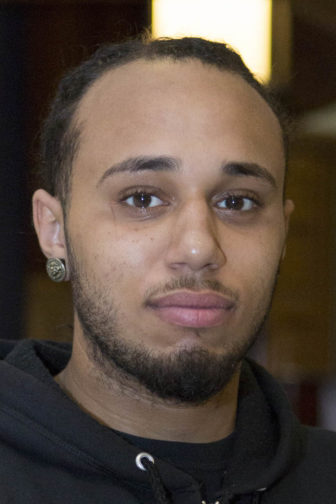 If you want to learn about ways to save our environment, you’d convene a group of scientists. If you want to assess ways to improve our health care systems, you’d convene a group of health care providers. Why is it that when we tackle major issues that directly affect youth, we often miss the opportunity to convene young people?
If you want to learn about ways to save our environment, you’d convene a group of scientists. If you want to assess ways to improve our health care systems, you’d convene a group of health care providers. Why is it that when we tackle major issues that directly affect youth, we often miss the opportunity to convene young people?
Currently in Massachusetts, the Council for State Governments is making recommendations for reforming and reinvesting in our criminal justice system to get better recidivism outcomes. I was able to join a meeting they had with community groups as a member of UTEC, a local nonprofit.
I sat and listened as people guessed at what programming behind the wall looked like and finally raised my hand to share my story. I had spent 18 months incarcerated for a felony charge I received at age 17. Eighteen months is nearly equivalent to time spent on an associate’s degree. I felt the respect of everyone in the room as they began taking notes.
Young people have a rich history of leading some great social movements in the United States: the civil rights movement, lowering the voting age, and most recently Black Lives Matter.
Every year at UTEC, about 175 young people (ages 17 to 24), specifically those with serious past criminal and gang involvement, participate in employment and education programming. A key component is our organizing program, which prepares and supports us — young people — to impact local, statewide and federal policy. Our work is aimed at getting young people, like me, a seat at the decision makers’ table.
UTEC helps coordinate a statewide youth-led policy-making coalition called Teens Leading The Way, which empowers youth to create lasting changes through policy. I serve as a representative through UTEC. By bringing young people together from across Massachusetts, we are able to form our own campaigns, come up with strategy, and execute the work. This includes conducting media interviews, advocacy with legislators at the capitol, hosting rallies and more.
We are currently working on a campaign for expungement laws, which would help the thousands of young people every year leaving juvenile and criminal justice systems. Currently, a criminal record restricts jobs, housing and educational opportunities that help reduce recidivism. I know firsthand, as my record has prevented me from getting many jobs.
This summer, under the leadership of Sen. Karen Spilka, the state senate passed an omnibus reform bill which included our expungement language. I sat in the balcony for the nine hours of the debate and vote. I’ll never forget the feelings of pride and empowerment when the senate passed it 31-9! I felt like all of our work had an impact. After the vote, Sen. Spilka met all the youth in the hallway and said she would not have pushed so hard for the bill had she not heard directly from us.
Given that there is now national attention on changing criminal justice systems for better recidivism outcomes while being smarter with funding, it only makes sense to bring young people who have been through the criminal justice system together to advise the process.
According to the research by the Council for State Governments in Massachusetts, young adults between the ages of 18 and 25 are disproportionately represented in our criminal justice system and also have the highest rate of recidivism, and more than half of those young people return to prison or jail within one year. We know we can do better, and it’s those very young people who should be weighing in on how we should do it.
In 2017, our incoming president and congress will begin acting on many issues that will define futures of America’s young people like criminal justice reform, community violence, jobs for young adults and more.
There are millions of young people nationwide under the age of 25 who struggle with these issues every day. Those young people’s lived experience will speak to viable solutions that policymakers might otherwise never come upon. The best first step for anyone looking to make these changes on behalf of young people is to pull up one more chair for the experts. We know it works.
Jamel Bonilla, 23, is a UTEC member and organizer with Teens Leading The Way. UTEC, Inc., in Lowell, Massachusetts, is a nationally recognized model agency whose mission is to ignite and nurture the ambition of proven-risk youth to trade violence and poverty for social and economic success.

























